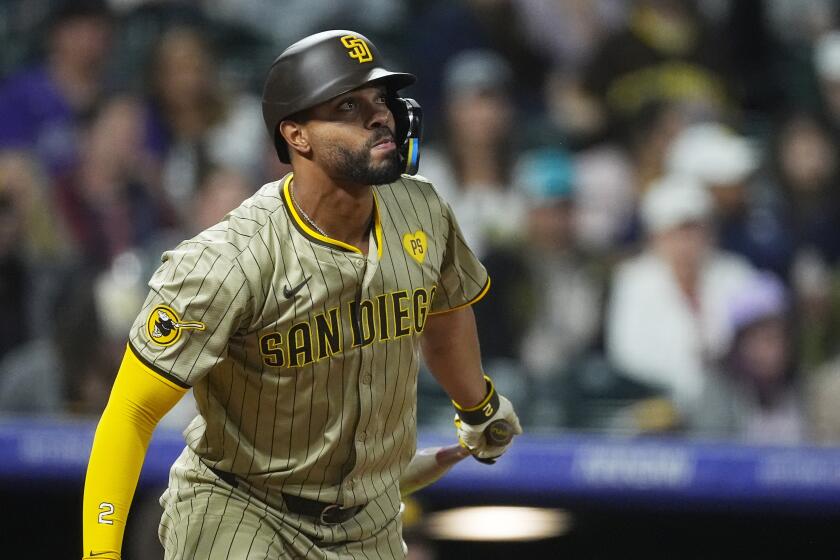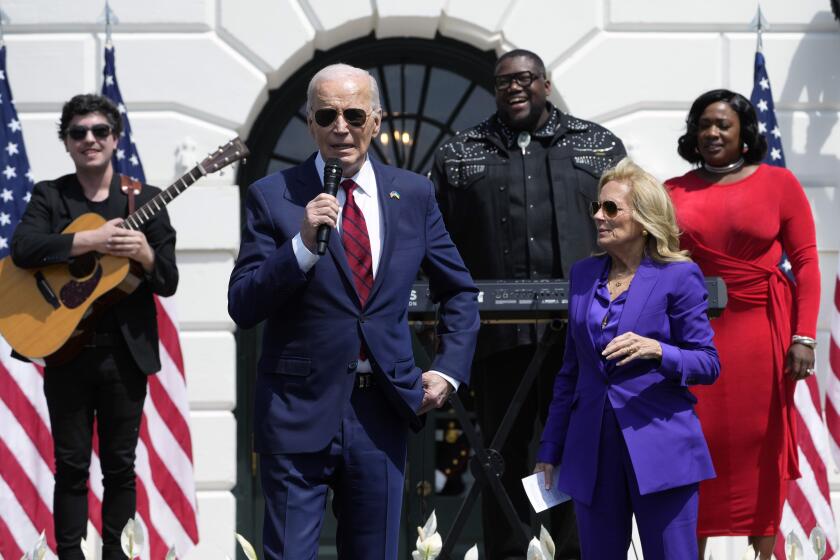Guaido orders Venezuelan military to let in humanitarian aid
The self-proclaimed interim president of Venezuela, Juan Guaido, on Wednesday ordered the country’s armed forces to allow the entry of international humanitarian aid, which is beginning to be collected at storage centers.
“Once again, a direct order to the armed forces at this time: Allow the necessary humanitarian aid to enter to take care of your families, your sister, your mother, your wife, who surely need supplies and some of whom, unfortunately, surely also have certain health conditions,” said Guaido at a meeting with agricultural producers.
Specifically, on Wednesday morning opposition lawmaker Franklyn Duarte complained that a military convoy was blocking the border crossing point at Tienditas, a modern facility linking Venezuela and Colombia and where humanitarian aid is slated to be brought in.
“What is blocking ... the Tienditas bridge, where (the soldiers) are expecting the humanitarian aid to pass, is a cistern (truck), a container and today in the morning a convoy of the National Armed Forces arrived,” Duarte told EFE.
Later, in remarks to reporters, Guaido said that he knew that container trucks were blocking the bridge, which he said he considered to be “an absurd reaction by a regime that is not interested in the public.”
“Despite that, we’re going to do everything possible so that this aid can come in,” said Guaido.
In Caracas, Maduro is clinging to power thanks to the loyalty and support of the between 95,000 and 235,000 members of the armed forces, according to the commanders of the different branches, who reject opposition leader Guaido as interim president.
Maduro, the successor to Hugo Chavez , began his second term as president on Jan. 10 and has held on to power with the help of the Bolivarian National Armed Forces (FANB), while the opposition calls his re-election a fraud.
Maduro’s adversaries contend that he stole the last presidential election.
Citing this position, Guaido, head of the opposition-controlled parliament, had himself sworn in as interim president two weeks ago and has gained the support of the United States and numerous countries in the Americas and Europe.
Hours after Guaido proclimed himself president, Defense Minister Vladimir Padrino said in a Twitter post that the armed forces would not recognize Guaido. A day later, the FANB commander announced that the armed forces were behind Maduro.
Little by little, however, soldiers have come out and said that they do not recognize the authority of Maduro and called on other military personnel to back Guaido.
Transparencia Venezuela, a non-governmental organization that documents corruption in the oil-producing South American nation, discussed the situation with EFE.
The armed forces support Maduro due to “the power they gained” under “Chavismo,” the political movement started by Chavez, and because of the “control the government has over them,” Transparencia Venezuela executive director Mercedes de Freitas said.
Under Chavez, a former paratrooper who governed Venezuela from 1999 until his death in 2013, soldiers were given top posts in the government.
Maduro has continued the practice, reinforcing his Cabinet with at least a dozen military officers, De Freitas said.
Meanwhile, Spain’s foreign affairs minister was set to travel to the capital of Uruguay on Wednesday to take part in the first meeting of an international contact group whose aim is to try and chart a peaceful end to the political crisis engulfing Venezuela.
Josep Borrell is to represent Spain which is one of eight European Union countries to travel to Montevideo to join the United States and other key regional powers who have recognized opposition leader Juan Guaidó as interim president.
“On 31 January, the European Union decided to proceed, jointly with some Latin American countries, with the setting-up of an International Contact Group (IGC) on Venezuela,” a statement said. “The IGC aims at contributing to create conditions for a political and peaceful process to emerge, enabling Venezuelans to determine their own future, through the holding of free, transparent and credible elections, in line with the country’s Constitution,” it added.
So far, 21 EU countries have recognized Guaidó and the contact group will aim to add pressure on Maduro, who has led the oil-rich South American country into an economic collapse and political turmoil.
Spain has for months been a driving force behind the group, whose meeting in Uruguay was agreed at the last gathering of EU foreign ministers in Bucharest, Romania, with the aim of favoring a political dynamic Venezuela that meets the conditions necessary to hold free and fair elections.
Federica Mogherini, the EU’s High Representative for Foreign Affairs and Security Policy has said the goal of the contact group was “not to open a formal mediation process, not to open a formal dialogue, but to provide a political dynamic that the group can then accompany and consolidate.”
The group is initially set to have a limited duration of 90 days and will seek to “build trust and create the conditions that are necessary for a credible process to emerge in line with the provisions of the Venezuelan Constitution.”
The first meeting of the group is to be held in Montevideo on Thursday and will be co-chaired by Mogherini and Tabaré Vázquez, President of Uruguay.
On Wednesday, however, Mexico and Uruguay in the latter’s capital proposed the so-called “Montevideo Mechanism,” a four-stage process consisting of immediate dialogue, negotiation, commitments and implementation to achieve peace in Venezuela.
“We’re proposing the Montevideo Mechanism as per our legitimate interest and readiness to contribute to helping the Venezuelan people and the involved actors find a solution to their differences,” the two nations said in a joint communique backed by the Caribbean Community (Caricom).
If Venezuela’s elected government, headed by Maduro, and the opposition - unified behind Guaido - agree to dialogue in accord with this plan, the head of the Ibero-American General Secretariat (Segib), Rebeca Grynspan, former Uruguayan Foreign Minister Enrique Iglesias and former Mexican Foreign Secretary Bernardo Sepulveda would be invited to accompany the process.
In addition, a top Caricom representative and “figures of recognized international experience and moral quality” would also be called upon to participate.
In that regard, the tripartite initiative is being established as a “peaceful and democratic alternative that favors dialogue and peace to foster the necessary conditions for a comprehensive and lasting solution.”
According to the proposal, the first phase - that of immediate dialogue - is designed to generate the conditions for direct contact among the involved actors “within a secure environment.”
Immediately thereafter, the process would move to the negotiation phase where a “strategic presentation of the results of the dialogue phase” would be made to the parties in which points in common and areas of opportunity would be sought to make their positions more flexible and identify potential areas of agreement.
The third phase, that of commitment, would consist of constructing and signing the agreement based on the results of the previous phase.
Finally, the implementation phase would be undertaken with international monitoring and support.
Although Mexico and Uruguay, along with the Caricom countries, recognize “the level of complexity and the circumstances” in Venezuela, they also said in the document that they feel this is “no reason to reject diplomatic routes to the solution of controversies.”



